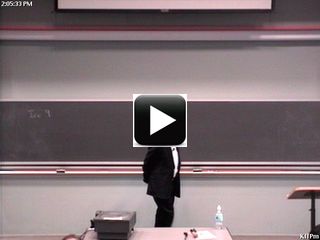Abstract: An equilibrium point of a physical system may be metastable
rather than stable; in this case, a suitable triggering event may cause the
system to leave equilibrium and find a new equilibrium point, typically at
a lower energy. This can even happen for the vacuum state of spacetime, if
there are fields with nonzero vacuum energy density. The study of such
vacuum decays is important in cosmology (where it is related to inflation)
and in string theory (where it is related to supersymmetry breaking).
We study some models, introduced by Adams, Polchinski and Silverstein, for
the decay of false vacua in string compactifications. Getting a handle on
both the evolution of spacetime and the end-product of the decay involves
some sophisticated tools from a branch of mathematics -- algebraic geometry
-- in all but the simplest cases. We will describe both the methods and
results of this study, in terms designed to be accessible to a wide
audience.
 Other video options
Other video options